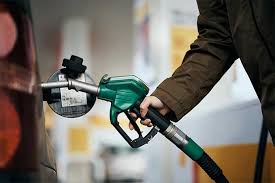Blackout left most of Venezuela without power Friday in what authorities blamed on sabotage of the national electrical grid, the latest crisis to hit the country after a disputed presidential election.
Venezuela experiences frequent blackouts, which President Nicolas Maduro’s government routinely attributes to unproven conspiracies to overthrow him.
Authorities reported the outage across 24 states began shortly before dawn, and by late afternoon power began to return to parts of Caracas, the southwestern state of Tachira and western Merida, AFP correspondents reported.
“I remain alongside the people on the front lines in the battle against this criminal attack targeting the national electricity system. Desperate fascism is attacking the people, but together we will win,” President Nicolas Maduro wrote on social media.
Earlier, Communications Minister Freddy Nanez reported “an electrical sabotage … which has affected almost the entire national territory.
The worst countrywide outage to strike Venezuela, in March 2019, lasted several days.
“It’s complicated to get around without electricity. We don’t know what’s going to happen during the day,” said Anyismar Aldana, a 27-year-old cashier on her way to work in Caracas, in the working-class neighborhood of Petare.
“People are afraid that it will happen again (like in 2019).” When the power goes out “we don’t work, we don’t know what to do for food,” she added.
Western regions such as Tachira and Zulia, once capitals of the oil industry, experience daily power outages.
“We woke up to the blackout,” said Carlos Pena, 39, owner of a small chicken shop in the centre of Caracas who came to work to “see if we can sell everything so that it doesn’t go to waste.”
– Economic collapse –
Maduro’s government has accused the United States and the political opposition of orchestrating the power failures.
Opposition leaders and experts, however, blame corruption and a lack of investment and expertise for the outages.
Over the past decade, Venezuela has experienced an unprecedented economic collapse that has seen more than seven million Venezuelans flee the country as GDP plunged 80 percent.
Nanez said the government had put in place “anti-coup protocols” after the blackout, citing the recent July 28 election — the result of which has been widely disputed.
Maduro was proclaimed the winner but the government-aligned National Electoral Council (CNE) has refused to release detailed data to verify the result.
The opposition says its candidate, Edmundo Gonzalez Urrutia, won the election by a landslide, releasing polling station-level data to back up that claim.
– Opposition candidate summoned –
Gonzalez Urrutia on Friday ignored a third summons to appear before prosecutors over his claims he was the rightful winner of the vote.
Prosecutors said if he failed to appear an arrest warrant would be issued.
Gonzalez Urrutia is accused of “usurpation of functions” and “forgery” for the opposition’s release of electoral results data.
The opposition candidate has accused Attorney General Tarek William Saab of pursuing politically-motivated charges and of not providing “guarantees of independence and due process.”
Maduro has previously threatened to jail Gonzalez Urrutia and opposition leader Maria Corina Machado, accusing them of being responsible for post-election protests and violence.
At least 27 people have been killed — including two military personnel — and almost 200 wounded, with 2,400 arrests, in protest-related violence since the election.
The United States, the European Union and several Latin American countries have refused to recognize Maduro as having won without seeing detailed voting results.
Brazilian President Luiz Inacio Lula da Silva said Friday that he “does not accept Maduro’s victory or that of the opposition. The opposition says it won.
“He (Maduro) says he won but there is no proof. We demand proof,” Lula told a local radio station.
AFP





























